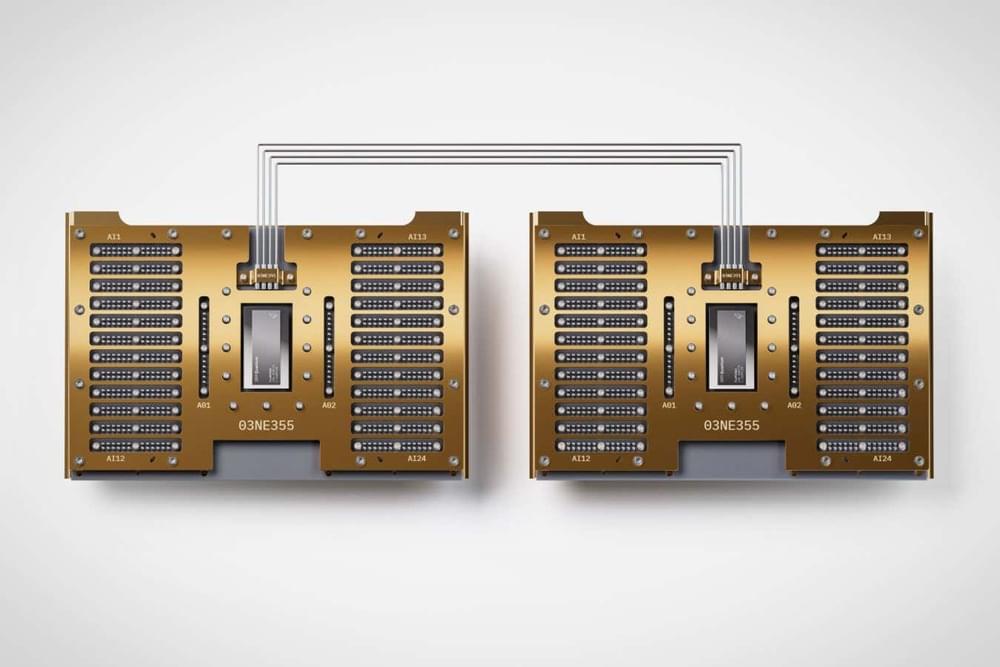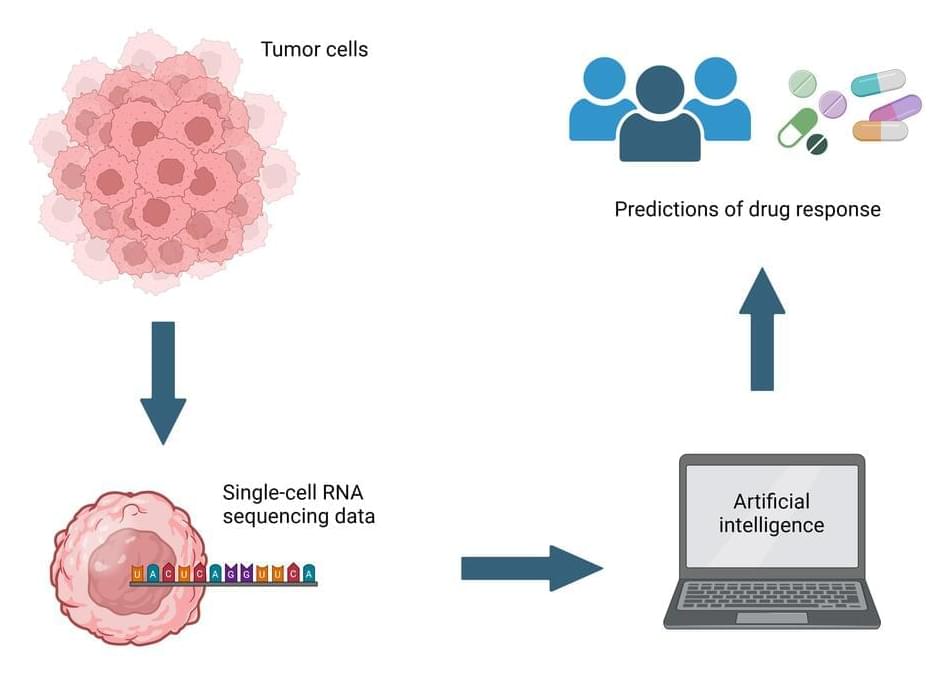Following successful early demonstrations of linking two quantum computing chips, IBM is aiming to break records for the largest quantum computer yet by combining many of them in parallel.


Following successful early demonstrations of linking two quantum computing chips, IBM is aiming to break records for the largest quantum computer yet by combining many of them in parallel.


Fructose consumption has increased considerably over the past five decades, largely due to the widespread use of high-fructose corn syrup as a sweetener in beverages and ultra-processed foods.
New research from Washington University in St. Louis shows that dietary fructose promotes tumor growth in animal models of melanoma, breast cancer and cervical cancer. However, fructose does not directly fuel tumors, according to the study published Dec. 4 in the journal Nature.
Instead, WashU scientists discovered that the liver converts fructose into usable nutrients for cancer cells, a compelling finding that could open up new avenues for care and treatment of many different types of cancer.
Ever wondered what happens when AI becomes smarter than humans? As we approach the three “scary” stages of AI—AGI (Artificial General Intelligence), ASI (Artificial Superintelligence), and the ultimate stage, Singularity—the line between groundbreaking innovation and existential danger grows thinner.
In this video, we’ll explore these stages, the potential for AI to surpass human intelligence, and the profound consequences of machines thinking, evolving, and controlling their own destiny. Are we truly prepared for the rise of AI?
Chapters:
Intro 00:00 — 0:43
AGI (2025−2029) 0:44 — 4:55
ASI (2035) 4:56 — 7:19
SINGULARITY (2045) 7:20 — 10:13
Tachyons, the hypothetical particles that travel faster than light, have long fascinated scientists and enthusiasts. In this video, we explore how the McGinty Equation (MEQ) serves as a groundbreaking tool in understanding these elusive particles. Delve into the world of quantum mechanics, fractal geometry, and gravity as we uncover the potential of tachyons to revolutionize science and technology. From their intriguing properties, such as imaginary mass and energy reduction at high speeds, to their implications for faster-than-light communication and interstellar exploration, this video is a journey into uncharted territories of physics.
We also discuss the quest to detect tachyons, innovative experimental methods, and the role of MEQ in guiding researchers. Could tachyons be the key to unlocking new dimensions, explaining dark matter and energy, or understanding the origins of the universe? Join us in this deep dive into the unknown and discover the potential future of tachyon research.
#Tachyons #McGintyEquation #QuantumMechanics #FractalGeometry #FasterThanLight #ImaginaryMass #QuantumPhysics #AdvancedPhysics #TachyonResearch #LightSpeedPhysics #QuantumFieldTheory #ScientificDiscovery #SpaceTime #InterstellarTravel #DarkMatter #DarkEnergy #FasterThanLightCommunication #PhysicsBreakthrough #CosmicMysteries #HypotheticalParticles
Imagine a world where energy is limitless, clean, and ever-present—a world powered by Zero Point Energy (ZPE). In this video, we delve into the fascinating concept of ZPE, a quantum mechanics phenomenon that reveals the hidden energy within the quantum vacuum. Discover how the McGinty Equation offers a theoretical framework for understanding this incredible energy source while addressing the challenges of thermodynamics. From the intriguing interplay of quantum fluctuations and fractal geometry to the enduring laws of physics, this video explores the science, potential, and limitations of Zero Point Energy.
Join us as we navigate the quantum sea, examining how energy whispers through the fabric of space-time and why harnessing ZPE may be one of humanity’s most ambitious quests. Whether you’re intrigued by the mysteries of the universe, cutting-edge scientific theories, or the potential for revolutionary energy solutions, this video offers a compelling exploration of one of quantum physics’ most captivating topics.
#ZeroPointEnergy #QuantumMechanics #VacuumEnergy #McGintyEquation #CleanEnergy #FractalGeometry #SpaceTime #QuantumVacuum #EnergyFluctuations #Thermodynamics #PerpetualMotion #Entropy #QuantumFieldTheory #RenewableEnergy #InfiniteEnergy #PhysicsExplained #QuantumScience #FuturisticEnergy #EnergySolutions #QuantumPhysics
Your Personalized AI Chatbot.

A cardiovascular surgeon has set the record straight about whether or not eggs are bad for your health. Full story.
It’s an age old debate – are eggs bad for your heart?
Dr Jeremy London, a cardiovascular surgeon from the US, posed the question to more than one million of his followers on social media and his answer may be surprising to some.
Dr London told Fox News that “eggs took a really bad rap” through the years, in large part because the American Heart Association (AHA) “came down hard on eggs” for being a poor dietary source and a heart risk.

NCI researchers have developed an artificial intelligence (AI) tool that uses data from individual cells inside tumors to predict whether a person’s cancer will respond to a specific drug. These findings, published today in Nature Cancer, suggest that such single-cell RNA sequencing data could one day be used to help doctors more precisely match cancer patients with drugs that will be effective for their cancer.
An AI tool called PERCEPTION developed by NCI researchers could one day be used to help more precisely match patients with effective cancer drugs.
